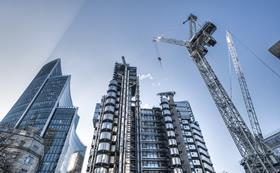Housing market shows signs of “vulnerability” while Brexit and review into HS2 add to industry jitters

Brexit, slower private sector housing demand and worries about whether key infrastructure schemes such as HS2 will end up being canned have seen the Construction Products Association (CPA) downgrade its growth forecasts for next year and 2021.
In its autumn predictions, the CPA said it had cut its growth forecasts for 2020 and 2021 from its summer prediction of 1.0% and 1.4% to 0.5% and 0.9% respectively.
The group said ongoing uncertainty about the UK’s departure from the EU, the review into the HS2 railway and cost overruns at Hinkley Point C had all added to industry jitters.
And in the private housing sector, starts are forecast to fall 2% this year given slowing house price growth and weaker demand in southern regions of the country, before returning to growth in 2020 buoyed by a more settled economy and the ongoing impact of Help to Buy.
But it warned “there are signs of vulnerability” as housing association development is increasingly linked to the slowdown in the general housing market.
Private housing will fall 2% this year, it said, before rising 1% next as drops in London and the South-east are offset by growth in the North-west, Yorkshire and the Midlands.
Despite fears HS2 will be pulled, it said there were isolated pockets of growth in infrastructure such as offshore wind projects with those underway or starting soon reaching more than £1bn in value.
The CPA’s economics director Noble Francis said: “The uncertainty created over when and how the UK will leave the EU has affected new investment in parts of private housing and commercial, the two largest construction sectors.
“Add to this growing concern about the government’s major project delivery and the next two years are expected to be challenging in spite of a raft of infrastructure projects in the pipeline and a strong latent demand for housing.”
The CPA warned Brexit uncertainty is impacting on confidence in the commercial sector with a reluctance to invest in new offices.
Francis added: “Infrastructure is forecast to rise by 11.2% this year and 3.7% in 2020 in spite of poor delivery of major projects. If government were able to improve its delivery of major infrastructure, then this could drive strong increases in construction activity as well as boosting UK economic growth and productivity.”
It also said the growth in warehouse work, fuelled by the demand for online retail, was expected to jump 15% this year and a further 20% next year.











No comments yet